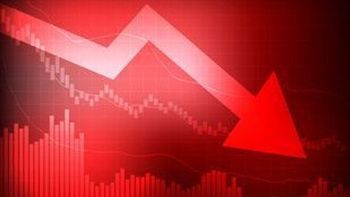
- Vol 49 No 09
- Volume 49
- Issue 09
Urology Times Money Matters: How does increased inflation affect the economy?
Inflation within healthy ranges can be advantageous for consumers.
I think I understand the basics of inflation, but what is the greater impact of increased inflation on the economy?
Inflation is the concept that the cost of goods and services increases over time. What a dollar can purchase today is going to be more than a dollar will be able to purchase 20 years from now. The purchasing power of that dollar diminishes over time as the prices of goods and services increase. Many people think of inflation as having a negative impact because they must spend more to purchase the same items. However, inflation can serve as a healthy component in an economy’s growth.
Inflation is not the increase in price of a single good or service, but rather of a broader basket of goods and services. For example, if the price of avocados increases due to a rise in popularity or lack of supply due to drought, flooding, or conflict, that is not considered inflation. The rest of the economy would carry on largely unaffected. In the United States, the standard used to measure inflation is the Consumer Price Index (CPI). The CPI is a measure that examines the weighted average of a “basket” of consumer goods and services. This assortment is intended to mimic the products and services commonly purchased by U.S. consumers and includes items such as food, energy, clothing, housing, medical care, education, communication, and recreation. The weighted average of these goods and services produces a percentage that is reported as the rate of inflation.
Although economists often disagree about the exact numbers, it is commonly believed that inflation in the range of 5% to 6%, or below, is healthy for an economy, whereas inflation rates of 9% to 10% or higher are harmful to the economy.
Here are some of the common effects that inflation can have on consumers and the economy:
Diminishing purchasing power. As stated earlier, when inflation raises prices, the purchasing power of a dollar diminishes. Consumers will have to spend more money to purchase the same items. Those hit hardest are the ones holding cash or who are on a fixed income that is not inflation adjusted annually. Over time, their purchasing power can be significantly impacted.
Increased spending. If consumers and businesses suspect inflation is on the rise, and fear that the value of their dollar will diminish, they attempt to spend that money before that occurs. In other words, they’ll likely worry that cash will only lose value due to inflation, so they’ll reason that it’s better to get any necessary shopping out of the way and stock up on things that probably won't lose value. In turn, increased spending by consumers and businesses positively impacts the economy.
Interest rates rise. As consumers and businesses spend more, more money enters the money supply and inflation continues to rise. To curb run-away inflation, the Federal Reserve Board will increase interest rates. Higher interest rates mean higher payments when borrowing money. This causes consumers and businesses to reconsider taking out loans to make major purchases. The money that would have been used as a down payment or as collateral now stays in their bank accounts earning interest. Consequently, less money is spent and less money is in the money supply, which slows the rate of inflation.
Existing borrowers benefit. Borrowers who already took out debt, such as a fixed-rate mortgage, will likely benefit from inflation. The value of their monthly mortgage payments will decrease over time. A fixed payment of, say, $2,500 per month on a 30-year mortgage will decrease in value over the lifetime of that loan. Assuming the borrowers’ income is growing along with inflation, it will feel like they are paying less over time. However, borrowers who are in variable debt products will likely see their payments increase over time so that the value of those payments are keeping up with inflation.
Investors target stocks. One way to offset rising prices is to purchase stock in the companies that are benefiting from receiving more money due to higher prices. As the companies earn more for the products they make, their stock prices will tend to increase. The value of an investor’s money will increase as the stock price increases which will offset some of the impact of inflation.
Many consumers feel the immediate impact of inflation and interpret it as a negative. Spending more on an item you are used to buying never feels great. However, modest inflation does serve an important service to the overall economy. As long as the rate of inflation stays within a healthy range, it is something to take advantage of rather than fear.
Articles in this issue
over 4 years ago
Lithotripters Trilogy and ShockPulse-SE show efficacy for stonesover 4 years ago
Multiparametric-MRI in prostate cancer: An expert’s viewover 4 years ago
Urology Malpractice: The deposition processover 4 years ago
Proinflammatory diet linked to testosterone deficiencyNewsletter
Stay current with the latest urology news and practice-changing insights — sign up now for the essential updates every urologist needs.






